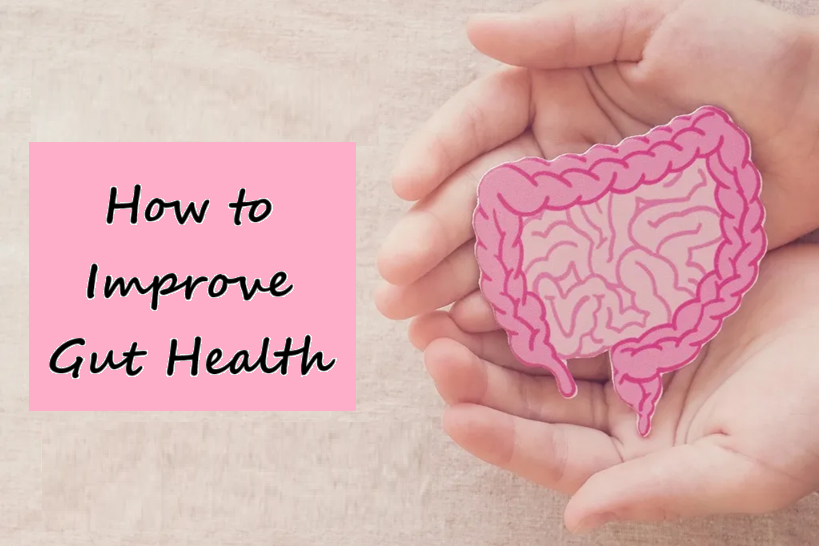Introduction
How to Improve Gut Health – Gut health is more than just a buzzword—it’s a cornerstone of overall well-being. Your gut, often referred to as your “second brain,” plays a crucial role in digestion, immunity, and even mental health. Poor gut health can lead to a host of issues, including bloating, fatigue, and chronic illnesses. The good news? Improving your gut health is within your reach. In this blog post, we’ll explore practical, science-backed strategies to boost your gut health and enhance your quality of life.
What is Gut Health?
Gut health refers to the balance and function of the microorganisms living in your digestive tract, collectively known as the gut microbiome. These trillions of bacteria, viruses, and fungi play a vital role in breaking down food, absorbing nutrients, and protecting against harmful pathogens. A healthy gut microbiome is diverse and balanced, contributing to better digestion, a stronger immune system, and even improved mood.
Why is Gut Health Important?
- Digestion and Nutrient Absorption: A healthy gut ensures efficient digestion and absorption of essential nutrients.
- Immune System Support: About 70% of your immune system resides in your gut, making it a key player in fighting infections.
- Mental Health: The gut-brain axis connects your digestive system to your brain, influencing mood and cognitive function.
- Weight Management: An imbalanced gut microbiome has been linked to obesity and metabolic disorders.
- Chronic Disease Prevention: Poor gut health is associated with conditions like irritable bowel syndrome (IBS), diabetes, and heart disease.
How to Improve Gut Health
1. Eat a Diverse, Fiber-Rich Diet
A diet rich in fiber promotes the growth of beneficial gut bacteria. Include a variety of fruits, vegetables, whole grains, nuts, and seeds in your meals. Some gut-friendly foods include:
- Prebiotic-rich foods: Garlic, onions, bananas, asparagus, and oats.
- Probiotic-rich foods: Yogurt, kefir, sauerkraut, kimchi, and miso.
2. Stay Hydrated
Water is essential for digestion and helps maintain the mucosal lining of the intestines. Aim to drink at least 8 glasses of water a day.
3. Limit Processed Foods and Sugar
Processed foods and added sugars can disrupt the balance of gut bacteria, leading to inflammation and other health issues. Opt for whole, unprocessed foods whenever possible.
4. Incorporate Probiotics and Prebiotics
- Probiotics: These are live beneficial bacteria found in fermented foods or supplements. They help replenish and maintain a healthy gut microbiome.
- Prebiotics: These are non-digestible fibers that feed the good bacteria in your gut. Foods like chicory root, dandelion greens, and apples are excellent sources.
5. Manage Stress
Chronic stress can negatively impact gut health by altering the gut microbiome and increasing inflammation. Practice stress-reducing techniques such as:
- Meditation
- Yoga
- Deep breathing exercises
- Regular physical activity
6. Get Enough Sleep
Poor sleep can disrupt the gut microbiome and lead to digestive issues. Aim for 7–9 hours of quality sleep each night to support gut health.
7. Exercise Regularly
Physical activity promotes the growth of beneficial gut bacteria and improves digestion. Aim for at least 30 minutes of moderate exercise most days of the week.
8. Avoid Overuse of Antibiotics
While antibiotics are sometimes necessary, overuse can harm the gut microbiome by killing both harmful and beneficial bacteria. Always use antibiotics as prescribed by a healthcare professional.
9. Limit Alcohol and Quit Smoking
Excessive alcohol consumption and smoking can damage the gut lining and disrupt the microbiome. Moderation or quitting altogether can significantly improve gut health.
10. Consider a Gut Health Supplement
If you’re struggling to get enough probiotics or prebiotics from food alone, consider a high-quality supplement. Consult your healthcare provider before starting any new supplement regimen.
Signs of an Unhealthy Gut
- Bloating, gas, or diarrhea
- Frequent fatigue
- Food intolerances
- Unexplained weight changes
- Skin irritations like eczema
- Mood swings or anxiety
If you experience persistent symptoms, consult a healthcare professional to rule out underlying conditions.
The Role of Gut Health in Mental Health
The gut-brain axis is a two-way communication system between your gut and brain. An imbalanced gut microbiome has been linked to mental health issues like anxiety, depression, and stress. By improving your gut health, you may also experience better mental clarity and emotional stability.
Conclusion
Improving your gut health is a powerful step toward enhancing your overall well-being. By adopting a balanced diet, managing stress, staying active, and making mindful lifestyle choices, you can nurture a healthy gut microbiome and enjoy the benefits of better digestion, immunity, and mental health. Remember, small, consistent changes can lead to significant improvements over time. Start today, and your gut will thank you!
Note: This blog post is intended for informational purposes only and is not a substitute for professional medical advice. Always consult a healthcare provider before making significant changes to your diet or lifestyle.



Leave a Reply